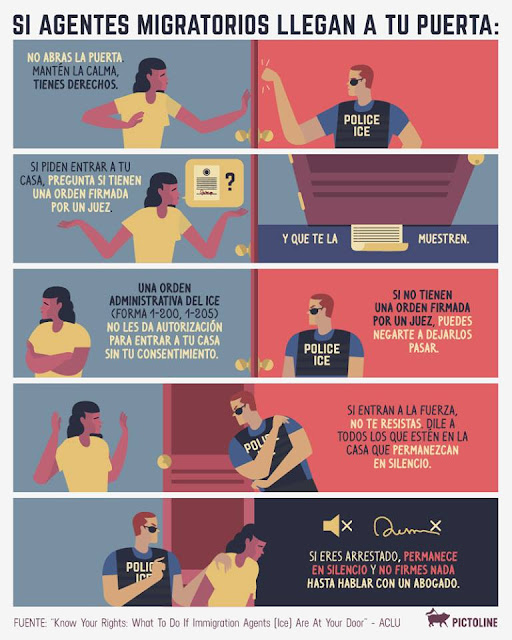Pardon I-212 to enter the USA after deportation or expulsion
Foreigners deported or expelled from the United States receive a penalty and can not legally enter for a time of punishment, unless they obtain a pardon known as waiver I-212.
This article explains when it is not necessary to ask for this waiver, how it is requested when it is necessary, what to do if you get the approval of this pardon and when it is also necessary to file another pardon jointly.
When is it NOT necessary to request this pardon?
Not all foreigners who have been expelled or deported from the United States need this pardon as a prior step to apply for a nonimmigrant visa - such as a tourist or temporary job - or an immigrant visa for the green card, So, if you do not need it, do not ask for it, because it would be a waste of time and money.
People in any of the following categories do not need to ask for this pardon:
1. Foreigners who arrived at a United States immigration post and were allowed to
withdraw their application to enter the country.
2. Foreigners who, upon arrival at a US immigration post, were stopped and were
prevented from entering the country but were not subject to an immediate
official expulsion. This is very important because it is necessary to distinguish
when there has been an expulsion and when the foreigner is simply not admitted
and returned to the country of the one who has arrived.
This difference is fundamental.
You have to look at what papers were signed or delivered.
3. Foreigners who were stopped at the border trying to cross illegally but,
for whatever reason, did not receive an immediate expulsion order. It is very
important to know if you received one or not.
4. Foreigners who arrived at a migratory post without a visa to belong to a country of
the Visa Waiver Program and were not allowed to enter. This is important for Chilean
and Spanish tourists and business people.
5. The cases of voluntary departure, when it left the United States within
the expected period. This is a very important exception.
6. U visa applicants for violence victims who are in the United States and
ask for an adjustment of status.
7. And, finally, those expelled or deported from the United States who have
already served the time of the penalty. Therefore, it is essential to know the amount
of years that apply to each case. And it is that for some foreigners the penalty lasts
5 years, for others it is 10 and for others, 20 and, finally, for another group exists
what is known as permanent prohibition (permanent bar).
To know with certainty how long the penalty is and the charges must be consulted in court records and cases of deportation, including the order of the judge and the document that is called
Notice to Appear in Removal Procedeedings. In the case of immediate expulsion, it is advisable to have the CBP (Border Patrol) record and Notice of Expedited Removal. In cases where it is dictated by a judge because it is a case of arriving alien, that document is also important.
In other words, it is only necessary to request this pardon if the time of the penalty has not yet passed and you want to apply for a nonimmigrant visa or an immigrant visa to enter the United States.
If you have any questions regarding Immgration Pardons or any other immigration topic,
Please contact
LEGiTiGO, today










